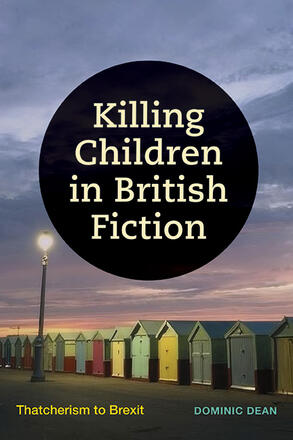
Killing Children in British Fiction
Thatcherism to Brexit
Alternative formats available from:
Investigates how British fiction and film use dangerous and endangered children to explore conflicts over the future, from the Thatcher to Brexit eras.
Description
This book stems from a simple yet disturbing observation: contemporary British fiction is full of children killing or being killed. Thoughtfully considering novels and films, alongside actual murder cases and moral panics, Dominic Dean develops this insight into a complex account of British cultural history, from the Thatcher to Brexit eras. Killing Children in British Fiction argues that the figure of the child provides means for negotiating, and hence for understanding, recent crises in Britain and their intersections with broader transnational conflicts. The book explores works from major British authors such as Kazuo Ishiguro, Ian McEwan, Doris Lessing, Sarah Waters, Alan Hollinghurst, and Peter Ackroyd; emerging writers such as David Szalay and Melissa Harrison; and filmmakers, including Stanley Kubrick, Nicholas Roeg, Robin Hardy, Derek Jarman, and Remi Weekes. Bridging and often challenging existing scholarship in childhood studies, literary studies, psychoanalysis, and critical and queer theory, Dean shows how the child, at once materially present and representative of an insecure future, can provoke relentless fantasies, fears, and, most troublingly, acts of real violence by adults.
Dominic Dean is Course Tutor and Senior Research Quality and Impact Manager at the University of Sussex.
Reviews
"An authoritative, acute, and insightful book on a highly distressing and important topic. Dean sets cultural representations of child killers and abusers into a wider social and political context and makes a powerful case for child killing as an index of our times." — Robert Eaglestone, author of Truth and Wonder: A Literary Introduction to Plato and Aristotle
"Dean charts a fascinating history of the end of neoliberalism told through the figure of the child. Refusing the essentializing terms in which ideas about children are often posed, Dean instead argues that the child might be pressed to service in any one of several different kinds of political and ideological projects. Their very intransigence and opacity compel and resist adult knowledge and direction, ultimately posing a problem for all political projects that rely on them." — Rebekah Sheldon, author of The Child to Come: Life after the Human Catastrophe